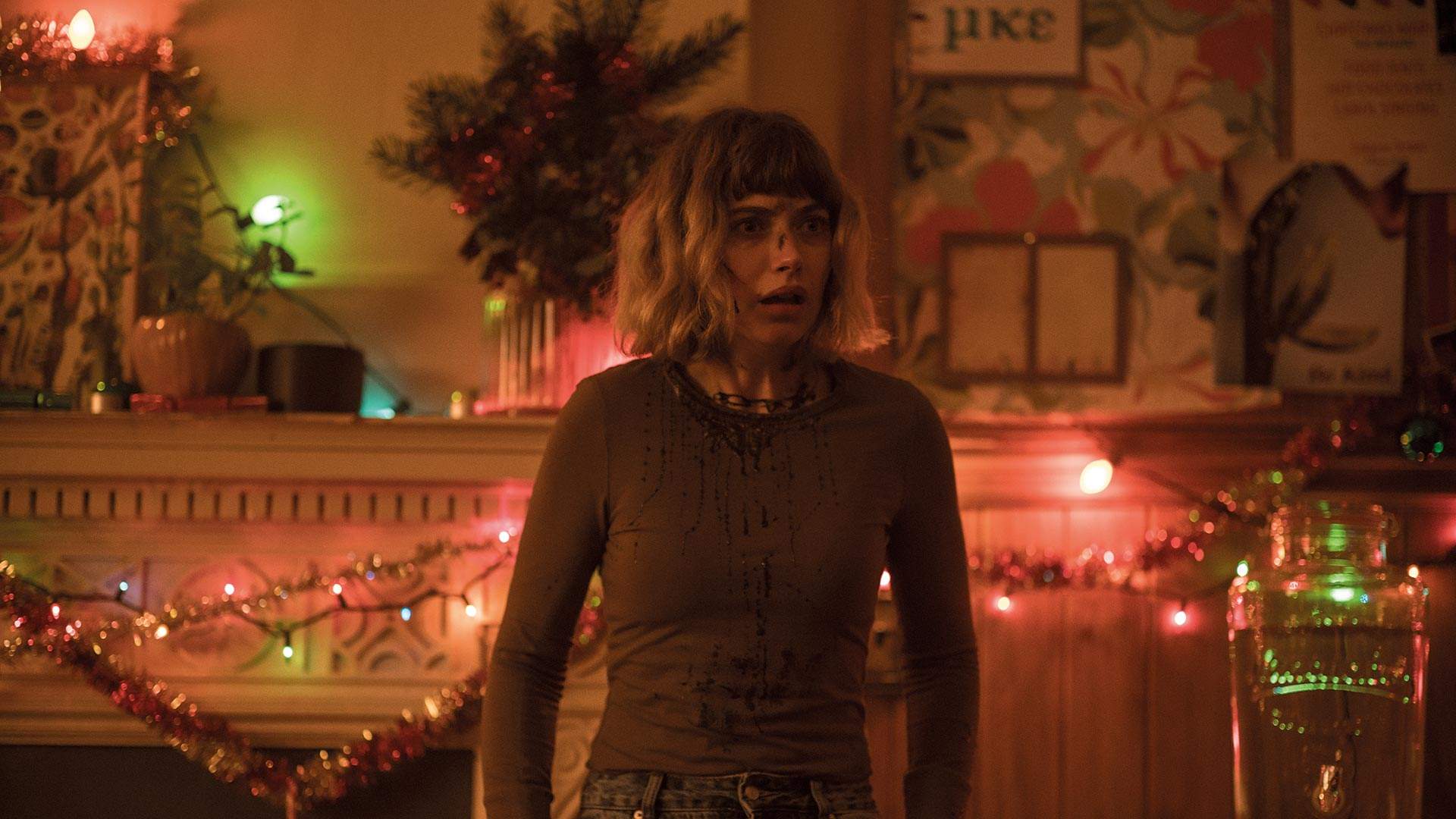Black Christmas
A timely remake of a 70s cult classic, this is a Christmas-themed slasher flick for the #MeToo era.
Overview
UPDATE, December 21, 2021: Black Christmas is available to stream via Netflix, Google Play, YouTube Movies, iTunes and Amazon Video.

A fun, feisty remake with a female perspective and a refreshing sense of sisterhood, Black Christmas is a college-set slasher flick for the #MeToo era. The latter gets thrown around a helluva lot of late — with Unsane, Ocean's 8, Booksmart and last year's latest Halloween instalment among those recently earning the label — but with this updated version of a 1974 cult movie, writer/director Sophia Takal (Always Shine) firmly leans into the term. Indeed, Black Christmas circa 2019 lives and breathes its #MeToo mindset, particularly in its story and characters. Here, a masked predator stalks women as the festive season swings into gear, specifically targeting sorority sisters at a stately university. There's a mounting body count, but these gals aren't merely a parade of powerless, disposable victims.
It all starts with a setup that's familiar by design: a silent night, an empty street and a woman walking home alone. Hawthorne College student Linday's (Lucy Currey) pace quickens when her phone starts jingling with creepy messages from someone using the 200-year-old school's founder as an avatar — and, when a man pops up right behind her shortly afterwards, she even threads her keys through her fingers. This all happens in Black Christmas' opening reel, so it's no spoiler to say that she's soon making snow angels in a rather gruesome way. But the winter break carnage is just beginning, ramping up after MKE sorority members Kris (Aleyse Shannon), Marty (Lily Donoghue), Jesse (Brittany O'Grady) and the very reluctant Riley (Imogen Poots) attend a Christmas party held by fraternity DKO — and sing a traditional ditty that's been rephrased to call out campus sexual assault.
In too many by-the-numbers horror films gone by, the way in which women are killed and the perpetrators behind their deaths are given more attention than most of the ladies themselves, but not in this new take on Black Christmas. From the moment that Takal introduces MKE's sisters, they're lively, interesting and sport distinctive, sometimes clashing personalities — especially when debating the best way to address the college's historic male leanings, such as petitioning for the inclusion of women authors on literature Professor Gelsen's (Cary Elwes) reading list. Kris is fearless about fighting for equality and empowerment, and about making as much noise as possible while doing so; however Riley has seen firsthand what speaking up can bring. Earlier in her studies, she was attacked by a DKO frat boy, but her assertion that she was raped fell on deaf ears.
Accordingly, before these MKE ladies even twig to the psychopathic ho-ho-horror in their midst, Takal and co-writer April Wolfe fill Black Christmas with different renderings and facets of modern womanhood that are all highly relevant to the broader conversation today. The constant battle against societally entrenched misogyny, the quest to be seen as more than an object for male gratification, the fact that victims are routinely disbelieved — these notions all find a place among the film's multi-faceted key characters. Also pondered strongly and thoughtfully is the pain and terror of falling prey to shattering violence, then attempting to pick up the pieces afterwards, a struggle that Poots conveys with weight and substance in a textured and engaging performance. This is a movie that's keenly empathetic towards those usually treated like fodder by the savage and entitled, and Poots' Riley is far more than just a final girl. In a film that throws a hatchet through the idea that women constantly compete and squabble amongst themselves, too, she has plenty of company.
Still, this is unashamedly a slasher movie. And while it's based on an ahead-of-its-time example of the genre — just forget the dire first 2006 remake with Mary Elizabeth Winstead, Katie Cassidy and Lacey Chabert — Black Christmas has tropes to play with and conventions to toy with. The mood is knowing and winking, with the film not quite venturing into Scream territory, yet clearly deploying well-worn elements on purpose and with a smile. So, when cliched lines of dialogue are shouted by various women in states of duress (including old favourites like "there's someone inside the house!"), this slick flick knows what it's doing. It knows that audiences might roll their eyes briefly as well, but reshaping the slasher formula to make a statement requires a hearty bout of nodding to all the genre's usual components.
Admittedly, taking a few cues from forgettable 2000 horror film The Skulls doesn't prove the best move, but it's one of the picture's few mis-steps. Well-executed bumps and jumps, including inventive slasher scenes and creative use of Christmas decorations; a smart reworking of a classic with an incredibly timely message; fleshed-out female characters with flaws, complexities and agency played by a great cast — thanks to all of these, Black Christmas overflows with entertaining festive horrors.





